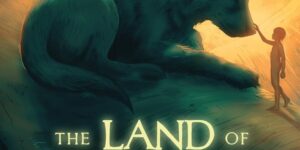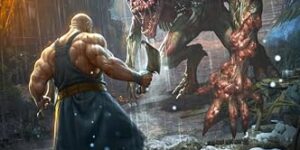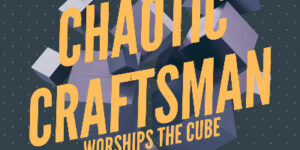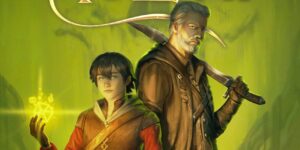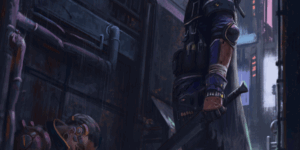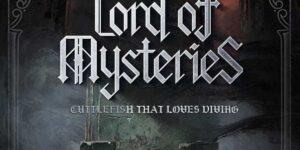The Acts of Androkles by Ryan English is an expertly written and emotionally layered fantasy set in a Greek-inspired world filled with monsters, spirits, gods, and old debts that never quite die. It follows Androkles, a worn-down, battle-hardened veteran who spent twenty-five years in service to an empire, scraping together gold to reclaim his honour. The twist is immediate and brutal, his wife has vanished with his savings. That’s the spark that sets off his journey, but the real story is in everything that follows.
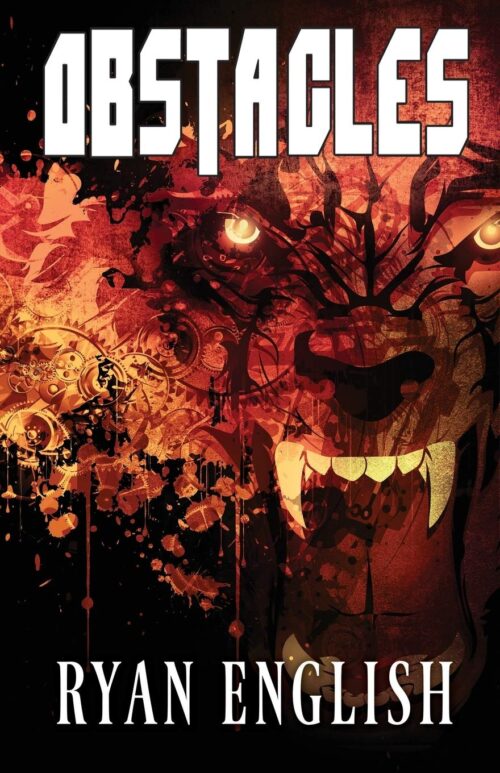
The Acts of Androkles Review
This book is not just about revenge or chasing lost money. It is about duty, fatherhood, regret, loyalty, and the quiet, stubborn endurance of a man who has lost everything except the code he still tries to live by. While it delivers heavy action, supernatural threats, and military grit, its core strength is character-driven storytelling, particularly in how it builds Androkles into a deeply human protagonist.
This is not a coming-of-age story. This is the story of a man at the end of his rope, long past his prime, who has every reason to give up but doesn’t. The tone is grounded and often grim, but not joyless. The structure is clear and well-paced, skipping over potential filler without sacrificing emotional impact or story clarity. The time skips are handled well, letting the plot move forward without bogging the reader down in less relevant travel or transition scenes.
The story starts on a personal level, with Androkles trying to recover his stolen fortune, but quickly expands into a larger journey involving mythic creatures, feuding kings, gods with unknowable motives, and nations on the brink of collapse. Despite all that scale, the story never loses focus. At every turn, it is grounded in Androkles’ perspective and personal mission.
Androkles is a fantastic protagonist. He is physically imposing and highly capable, but he’s not a superhero. He is scarred, tired, and often outmatched. What sets him apart is not raw power but sheer will and a brutal kind of competence earned over decades of war. He makes mistakes. He carries regret. He does not always do the right thing. His morality is shaped by his culture and his past, and the story doesn’t shy away from showing how those beliefs put him at odds with others. He is proud, but not immune to being humbled, and the story uses those moments effectively to show growth.
The supporting cast is equally strong. Everyone has a purpose. Characters have distinct voices, motivations, and cultural contexts that feel authentic to the world. Allies challenge Androkles’ worldview instead of just agreeing with him, and enemies are not just caricatures. Even the villains have logic and structure to their decisions, making them credible threats rather than one-dimensional obstacles.
The world of The Acts of Androkles is detailed and believable. It draws from ancient Mediterranean history and mythology, but it is not a carbon copy. It uses that foundation to build something new, with unique societies, belief systems, and a functional blend of fantasy elements. You’ll see beastmen, mythic monsters, spirit magic, and gods that feel ancient and unpredictable.
One of the best worldbuilding choices is how magic and martial prowess are handled. There are no power levels or game systems here. Combat is brutal and often lethal, even when it involves supernatural forces. The tension stays high because the fights matter, and the stakes feel real. The “killing aura” concept, treated like a form of magic, is particularly clever. It is not just flashy for the sake of being cool. It ties into the psychological and cultural aspects of the setting.
This story tackles several heavy themes, honour, legacy, betrayal, fatherhood, and the struggle to maintain one’s identity in a world that no longer recognizes who you are. One of the most compelling arcs is how Androkles transforms from a man haunted by his failures into someone willing to fight, again and again, for people he never intended to care about. The shift feels natural, not forced. He does not become a better man through some dramatic, sudden revelation. He changes slowly, through choices and consequences.
The theme of fatherhood in particular is handled with care. The story doesn’t just hand Androkles children to protect, it forces him to question what kind of man he has been, and whether he can be more than a warrior. That internal conflict is what gives the story emotional weight far beyond its sword-and-sandals premise.
The prose is clean and professional. The story reads like a traditionally published book. There are no noticeable grammar issues, no clunky exposition, and no tonal inconsistencies. The dialogue feels natural. The humour is sparse but effective. The cultural flavour of the world seeps into everything, from the vocabulary to the insults to the way people reason and argue. The influence of Greek history and philosophy is clear, but it never overwhelms the narrative.
The author knows when to step back and let the characters breathe. There are moments of quiet introspection, loss, and hesitant joy, placed carefully between bloodshed and grim choices. The emotional beats land well because they are earned.
If there’s one complaint, it’s that the ending leaves a few threads unresolved. The story focuses heavily on Androkles’ journey and the people he meets along the way, but once the major events wrap up, some lingering questions remain, questions about his future, about the enemies he’s made, and about what comes next for the family he’s built. It doesn’t ruin the experience, but it leaves a gap that a follow-up novella or epilogue would go a long way toward filling.
Some readers might also struggle with the slower start. The early chapters are deliberately paced and emotionally heavy. They set the tone, but they may feel slow compared to the faster-paced middle and end.
The Acts of Androkles is an excellent blend of character drama, mythic adventure, and military fantasy. It respects its world and its characters, and it doesn’t treat the reader like a fool. The story is dark at times, but never hopeless. The stakes are real, the combat is intense, and the emotional journey of the main character is worth every step.
It is highly recommended for readers who enjoy:
Gritty, grounded protagonists
Mythological worldbuilding
Deep character development
Combat that is tactical and brutal
Themes of honor, legacy, and fatherhood
Not ideal for those seeking:
Fast-paced, action-only storytelling
Modern moral sensibilities
Clear-cut heroes and villains
Light, casual fantasy reading
Brutal, emotional, thoughtful, and consistently engaging. A standout story that deserves a wide audience.
See A Land of Broken Roads for Ryan English’s other fantasy series.
If you’re a fan of long, character-driven slice-of-life Greek mythology inspired webnovels, like The Acts of Androkles, you might also enjoy reading my review of The Vengeful Scribe.

